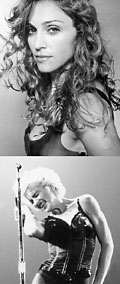WE ALL KNOW the Bible: Mayor Paul Schell proclaimed a weeklong celebration of it; DreamWorks recently made a movie about it; Al Gore and George W. Bush swear by it; women, gays, and racial minorities have been politically screwed by interpretations of it; motels across the country rent access to it. So why would Americans actually want to read it? Because, as Grove Press might respond, thumping a finger against this latest, sleekest version—a black box that contains six Old Testament books and six New, with input from contemporary writers—it’s a literary feast.
THE POCKET CANONS: THE BOOKS OF THE BIBLE
(Grove Press, $24.95, 12-copy box; $2.95 each)
Jewish, Christian, Buddhist, and a few agnostic literati sit at the supper table in The Pocket Canons: The Books of the Bible, each offering their own introductory essay. Most of these introductions stay within a comfort zone by mixing secular biblical history and literary criticism with a nod to the Bible’s moral tradition. In introducing the wise yet severe Tao-te-Ching -like book of Proverbs that instructs, “He that spareth his rod hateth his son: but he that loveth him chastenith him betimes” (13:24), UW professor and MacArthur recipient Charles Johnson plays it safe by suggesting, “As we walk through this life, may we recognize that Proverbs, in its fierce, uncompromising purity, is a work worthy of our trust.” He forgot to add: “Unless your abusive stepfather is reading it.”
The essays that baptize themselves through fire as much as water are far more engaging. Francisco Goldman reminds the reader that, for all its spiritual insight, “it is impossible, in our American, in our worldly context not to read and regard the Gospel According to Matthew as its own negation as well—as inevitably evocative of all the horrors, injustice, and racist and hypocritical acts committed in its name.” U2 frontman Bono gets cheeky when he compares David to a pop legend and Psalms to the blues: “David was a star, the Elvis of the bible, if we can believe the chiseling of Michelangelo (check the face—but I still can’t figure out this most famous Jew’s foreskin),” while Fay Weldon asks how anyone can actually like Corinthians’ condemnatory Paul.
AND THEREIN LIE the questions that probably prevent many Americans from reading the Bible: How can one like a man who in his letters states that “It is better to marry than to burn” (7:8) and that “It is a shame for women to speak in church” (14:35)? How can one like a God who commands Abraham to sacrifice his son in Genesis, and tests Job’s faith and sanity to prove His power over Satan? How can one enjoy a humorless moral guidebook that ends in Revelation with 144,000 heavenly survivors and the rest of the world in Hell? The easy answer is one doesn’t have to, because there’s so much else to enjoy: Genesis’ Joseph, the ex-slave who provides his treacherous brothers with a well-deserved yet heartfelt lesson; Jesus, the compassionate revolutionary who declares, “Blessed are they which are persecuted for righteousness’ sake” (5:10); the God of Revelation, who, despite his fury, will eventually “wipe away all tears” (21:4); and countless other characters and stories that have spawned artistic masterpieces, introspection, and spiritual fulfillment.
Like America, the Bible is democratic. No matter one’s state of residence, gender, race, or sexual orientation, this text is open to interpretation. Much of the Old Testament contradicts the New, and evolving cultures and new translations further blur the original meanings of passages. And as for the religious argument that each and every word is the infallible Word of God, then why did Jesus teach using parables? Think about it: These words, read by various eyes and filtered through various minds, produce awe, fear, joy, numbness, love. In the end, God is not in the details, but in between the lines.
The Direct Path
by Andrew Harvey (Broadway, $24.95)
CHOCK FULL OF SPIRITUAL practices from the world’s various mystical traditions, Andrew Harvey’s The Direct Path reads like a guidebook for the spiritual tourist. Although many contemporary spiritual leaders denounce such tourism for being superficial and scattered, Harvey never broaches the subject. He does hint at why these leaders might warn against honing one’s spirituality through bits and pieces borrowed from multiple traditions: “If everyone is able to be in unmediated contact with the Divine, to be taught in the terms of their own lives directly by the Divine, then what need is there for a priest class, monasteries and temples, or gurus?” A religious scholar for 25 years, an editor of Sogyal Rinpoche’s monumental Tibetan Book of Living and Dying, and a man who recently suffered through his devotion to a two-faced guru, Harvey eventually exchanged relying on others’ spiritual insights for listening to his own. He reflects, “I would have continued to project, probably in more and more subtle ways, my own divine truth and essence onto Meera [his guru] or Rumi or the Dalai Lama, and so have avoided the ultimate adventure—which is to claim complete responsibility, in and under God, for one’s own spiritual development.” While Harvey may betray a grudge against gurus and avatars (he calls the majority of them “unscrupulous occult manipulators”), he warmly embraces all spiritual lineages, from Cabala to Wicca, and eloquently communicates their means of tapping into the Divine. Meditation, chanting, yoga, and feng shui are only a few of the stepping-stones found along his Direct Path. With the exception of the occasional practice that seems like a space filler (doesn’t everyone indulge in laughter and hot baths?), Harvey’s book offers something for every spiritual seeker—whether she’s looking to get her feet wet or take the plunge.







